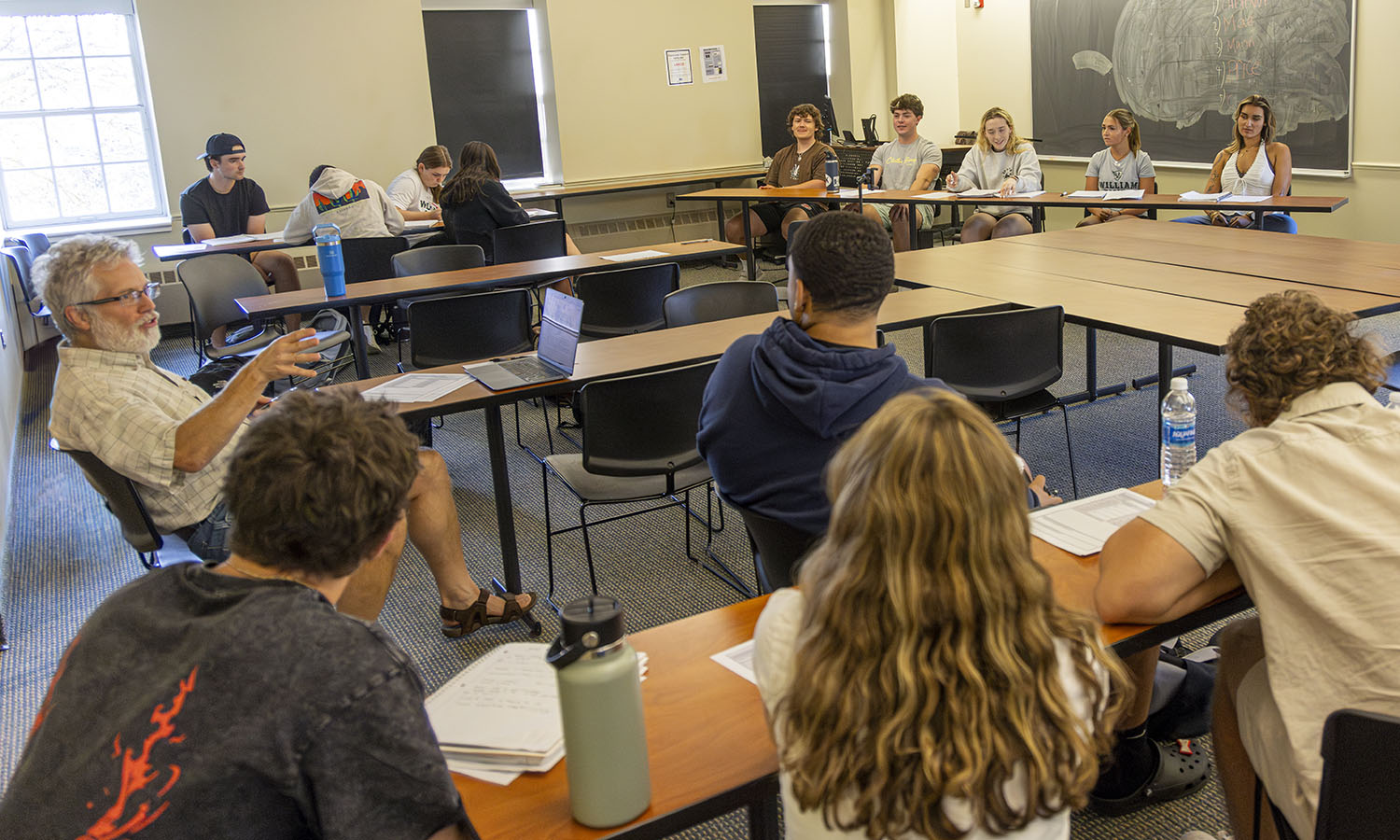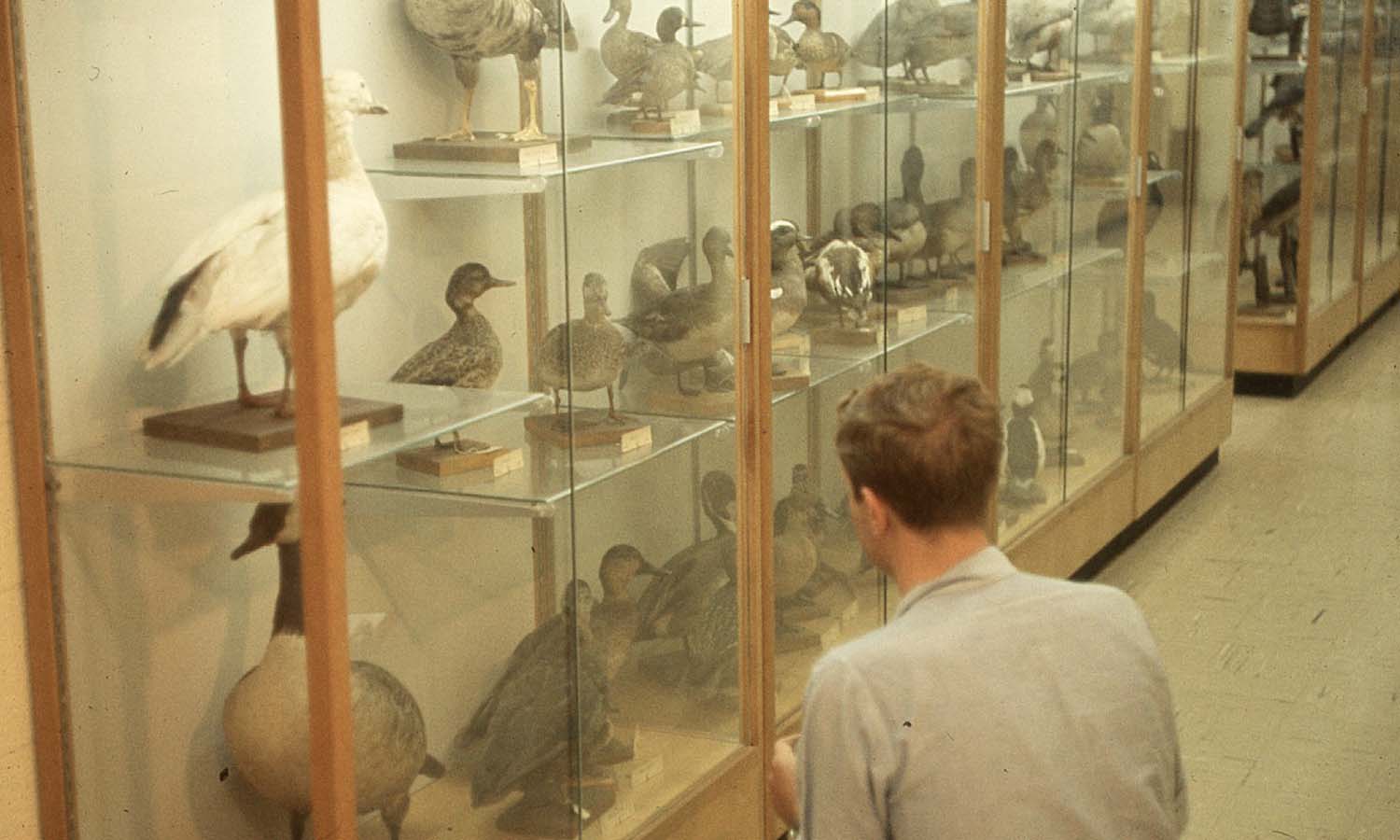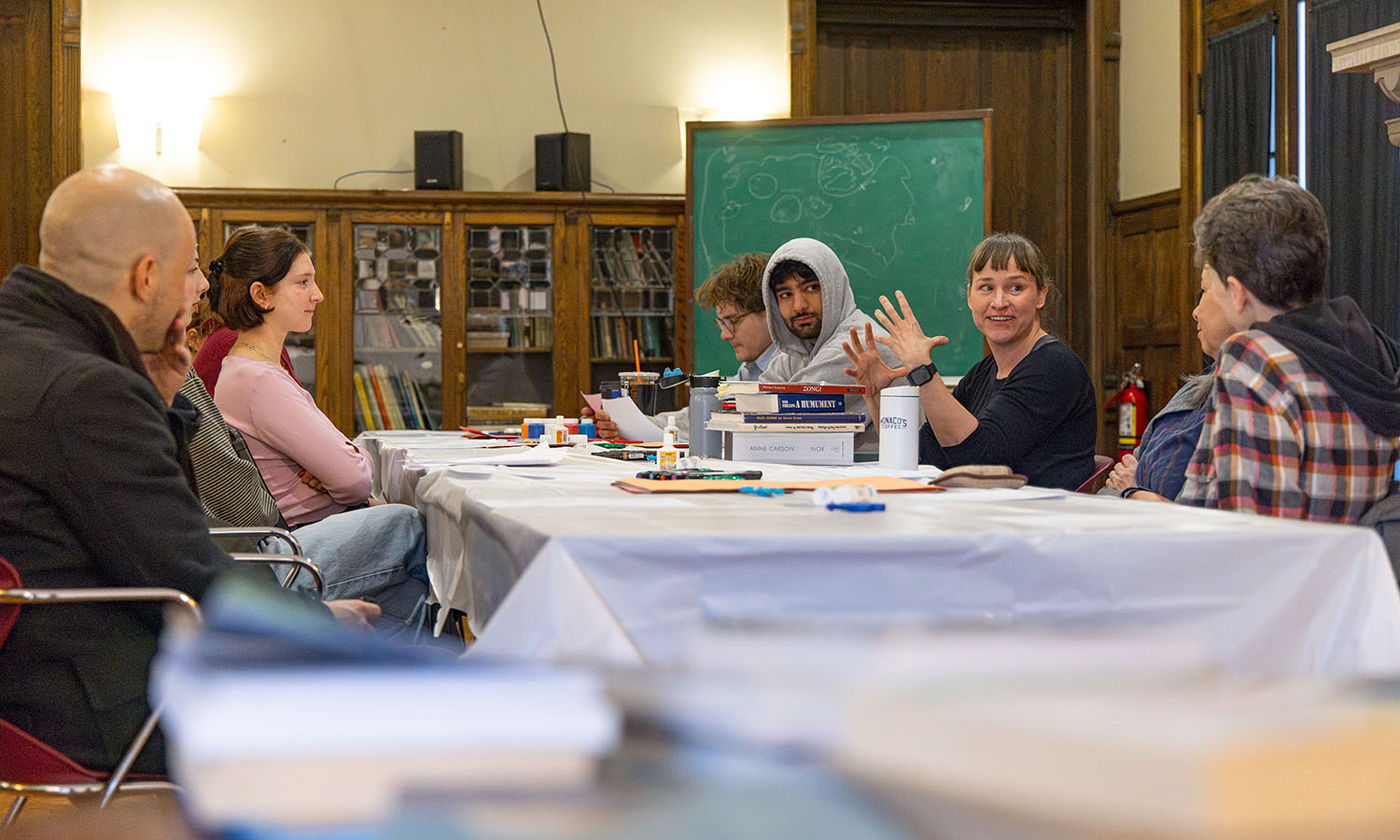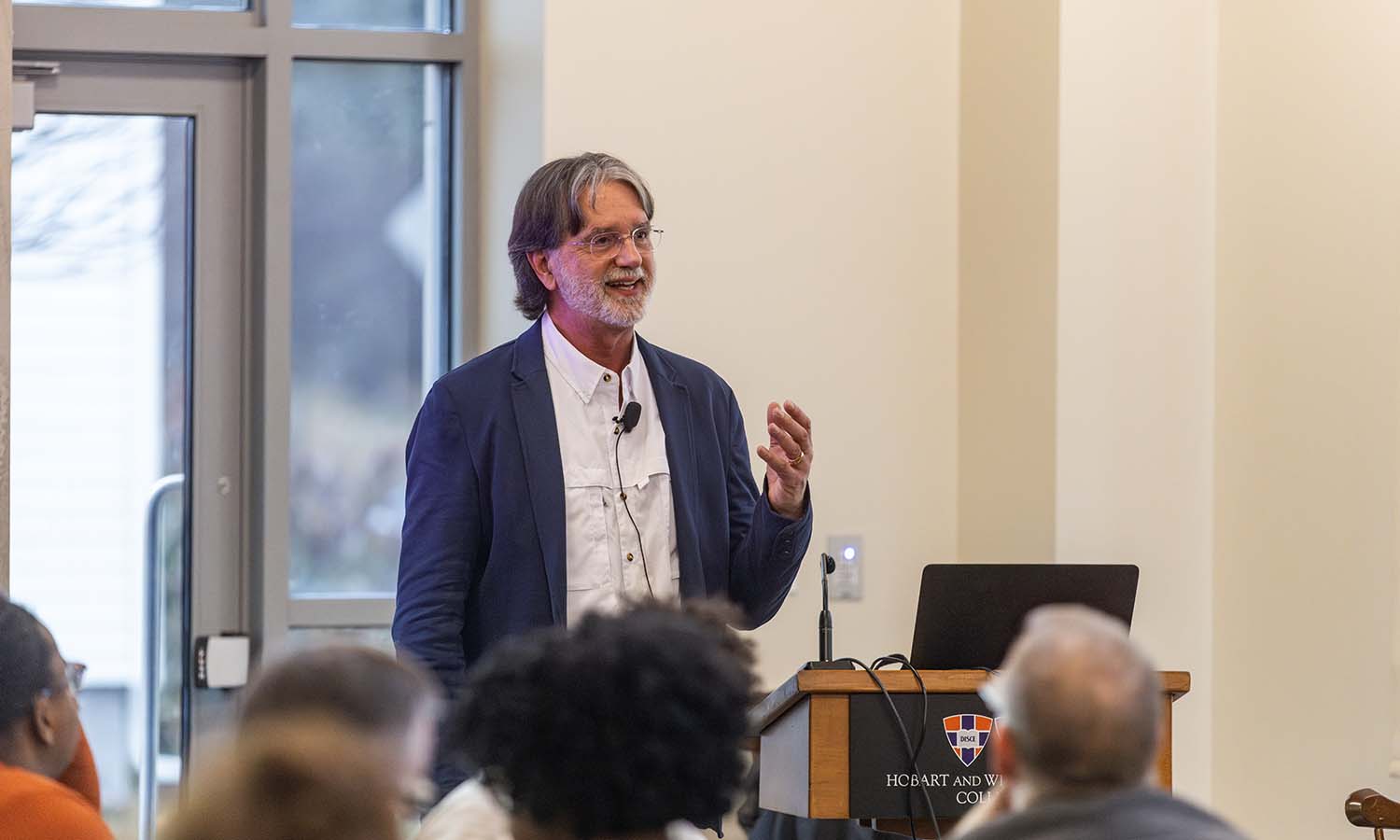
HWS News
26 March 2025 • Faculty Teaching During Wartime Infuses Lessons with New Meaning
Professor of Philosophy Eric Barnes to explore morals and ethics with Ukrainian students.
Since the beginning of the war in Ukraine, Professor of Philosophy Eric Barnes has wondered what he could do to help. “I can give a little money,” he says. “But I’m not going to volunteer to go fight in Ukraine. I don’t think they would want me, or worse, they might! But that is not my skill set. I’m a philosopher. What can I do?”
Earlier this year, an opportunity answered that question. A chance to teach an online philosophy course to displaced Ukrainian students will allow Barnes to tap his skill set for the cause. Barnes plans to teach “Introduction to Moral Theory,” examining how people ask ethical questions; how they determine what actions are morally right and respect people’s rights. During the course, he will introduce students to the major approaches to discerning right from wrong. The effort is coordinated through Flying University for Ukrainian Students, a project of the EEPS Foundation, a public charity that promotes interdisciplinary scholarly research on and in Eastern Europe.
After the attack on Ukraine in February 2022, the call went out to U.S. professors like Barnes to donate a course to Ukrainian students, who could gain valuable knowledge, practice their English and experience an American approach to college-level learning. Courses help students overcome their isolation in the third year of war and expand their knowledge with the hope that credit can be transferred to participating institutions once students can return to class.
At HWS, Barnes teaches courses such as "Moral Dilemmas,” "Puzzles and Paradoxes," "Philosophy of Sport" and "Foundations of Ethics," but has never taught to students during war.
Barnes finds himself wondering how he will craft his course to fit the parameters of the Flying University, which will include six to 20 students in a course held in four to five, 90-minute meetings.
There are multiple challenges to consider, Barnes learned from his first faculty meeting where professors discussed expectations. “Sometimes someone will be in class, and say, ‘I’m sorry. I have to leave for a bit because the shelling is too loud,’” Barnes says. “It’s very real. It’s not this abstract idea that sometimes, things might go bad.”
During that first faculty meeting, he says other professors and a Ukrainian student shared their experiences. “Apparently, (shelling) happens with some regularity. Or the electricity will get knocked out because they bombed the electricity generation facility,” Barnes says.
People have adapted, but Internet connections can drop, he hears from returning faculty. For all these reasons, students who manage to participate tend to be very highly motivated, Barnes explains.
He says that their commitment to studying the humanities during a war is a true inspiration.
Top: Professor of Philosophy Eric Barnes leads a group activity during "Philosophy of Sport."



